Brexit, argued Chris Deerin on CapX this week, has done something to the English brain. It’s stripped away judgment, perspective and a sense of humour. It’s caused a galvanic outpouring of nationalist feeling on everything from Easter eggs to passport colour to the sovereignty of Gibraltar. In short, it’s turned us into the kind of boggle-eyed monomaniac nutballs that are normally seen wrapped in the Saltire and voting for Nicola Sturgeon.
There is certainly a strain of Brexiteering opinion that indeed tends towards the boggle-eyed. That seems to think that all we have to do to get the EU deal of our dreams is to dress David Davis up in a Union flag waistcoat and send him over to bang on the table while a couple of gunboats loiter off the Belgian shore. That any concession to Brussels, in any form, is tantamount to an admission of national defeat.
And there is an odd parallel here with a certain strain of Remainer opinion. The British public, they argue, were duped into Brexit by unscrupulous Right-wingers who promised that leaving the EU would be pain-free and cost-free – promised, indeed, that there would be a weekly pot of £350 million at the end of the rainbow.
Now, they chuckle, we are into the actual negotiations. And won’t the voters be surprised – and outraged – when Theresa May’s impudent demands are rejected by Brussels and Britain has to accept a second-tier deal and second-tier status? At last they’ll see how foolish they were to vote for Leave, and how much they needed our guidance.
Yet the blunt truth is that, away from the tabloid front pages, the reservoir of sense and perspective on Brexit runs surprisingly deep.
It is not just that Theresa May’s demands, and Michel Barnier’s responses, seem eminently reasonable – or at least show a shared determination to approach the negotiations in a grown-up spirit.
It is not even that – as Prof John Curtice, the doyen of British pollsters, pointed out on CapX yesterday – May’s negotiating position reflects almost exactly the position of the English people (and many Scots too). They would like to see immigration controlled, but trade continue on as free a basis as possible.
It is that the English are not complete and utter idiots.
During the referendum itself, the data showed that voters did not believe that we were sending the EU £350 million a week. But they believed that we were certainly sending it more than we should.
Likewise, as Prof Curtice has written elsewhere, only a quarter of voters believed that the economy would be better off after Brexit; a third believed it would get worse. But they either judged that the effects would be small – or that the price was worth paying in order to control immigration, restore sovereignty and all the rest of it.
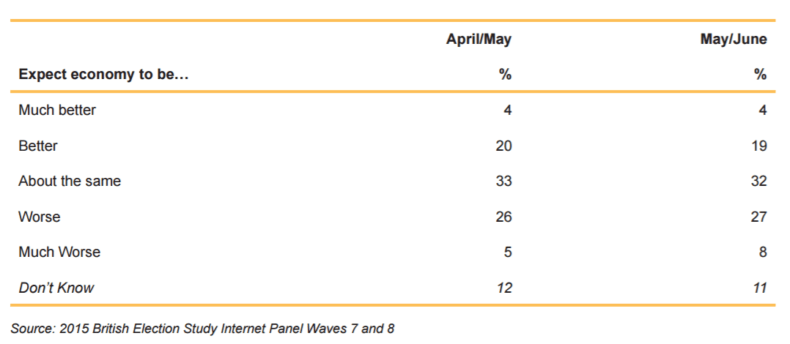
And recent research from Ipsos MORI (whose graphs are below) suggests much the same about the Brexit negotiations.
Most voters are pessimistic about the economy (but then, they usually are). More think the Government has done a bad job of negotiating Brexit than a good one; but they think the reverse of Theresa May herself.
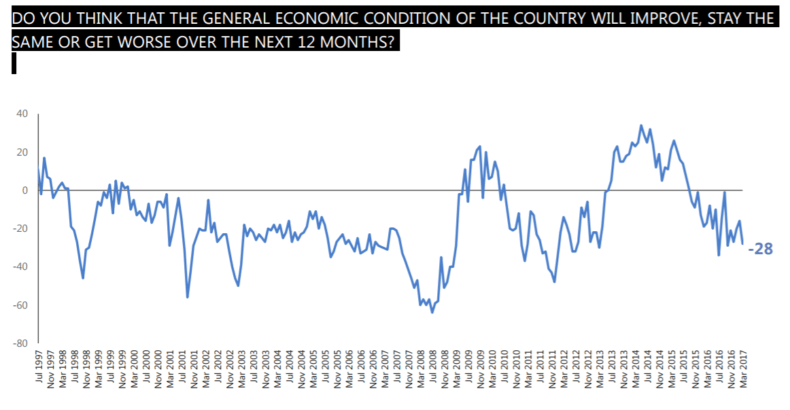
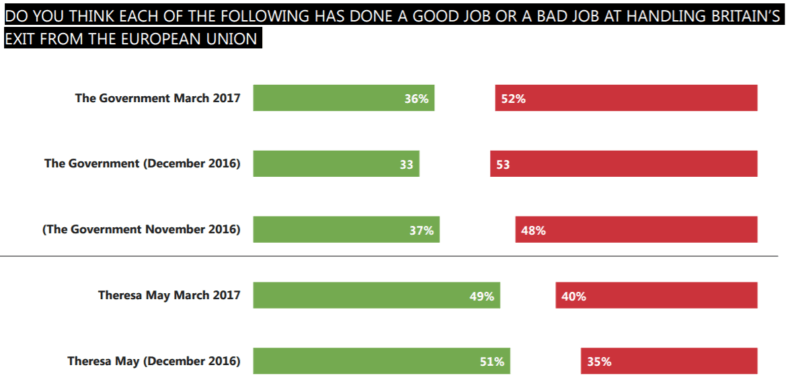
In terms of the deal, some 44 per cent are confident that the PM can get a good one, vs 51 per cent who aren’t. (Interestingly, the figures for David Cameron before his own renegotiation were much worse.) But they strongly agree that no deal is better than a bad deal, and (as per Curtice’s article) prize controlling immigration and single market access over stopping all payments to Brussels.
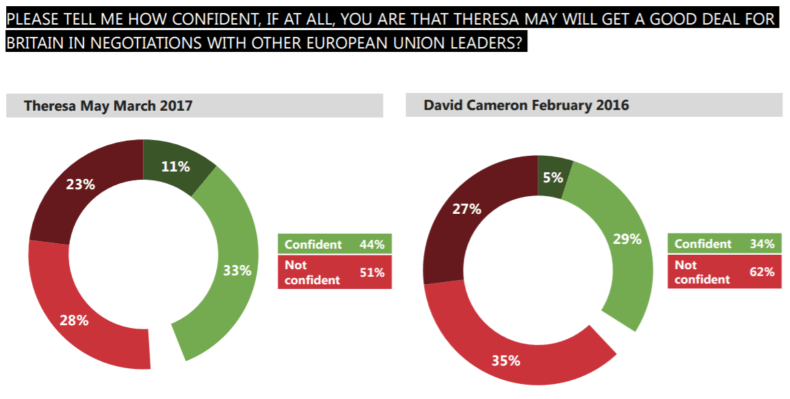
But here comes the kicker. Twice as many voters – 37 per cent to 18 per cent – think Brexit will be bad or very bad for their standard of living compared with good or very good. These aren’t people who are expecting Brexit to be all sunshine and rainbows. And they’re not people who are going to change their minds about it at the first sign that things aren’t going well, because they’re already expecting the process to be difficult and potentially costly.
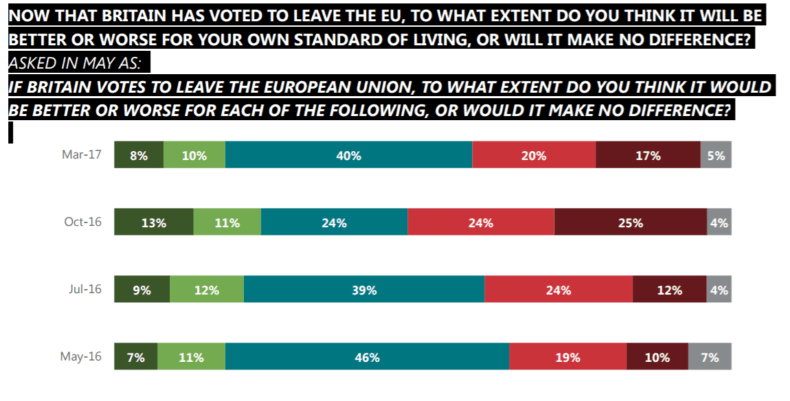
In other words, in answer to Chris’s accusation that his southern neighbours have gone “full-bore whacko”, it’s possible to tell a rather more traditional and rather more reassuring story.
The English haven’t gone mad, Easter eggs aside. They’re hoping for a good deal on Brexit, not entirely confident they’ll get it, and are prepared for a bit of pain in the process. They’re not blind jingoists, but sceptical realists.
And just to make Chris feel better – it turns out that if it makes Brexit easier, quite a lot of them are perfectly happy to let Gibraltar go hang.
This article is adapted from Robert Colvile’s Weekly Briefing email. To receive it, sign up here.


